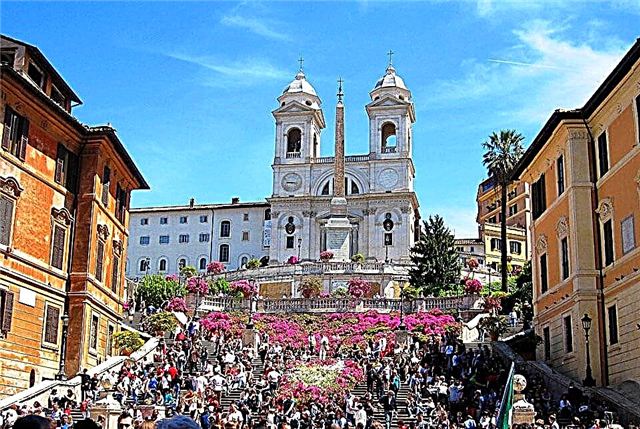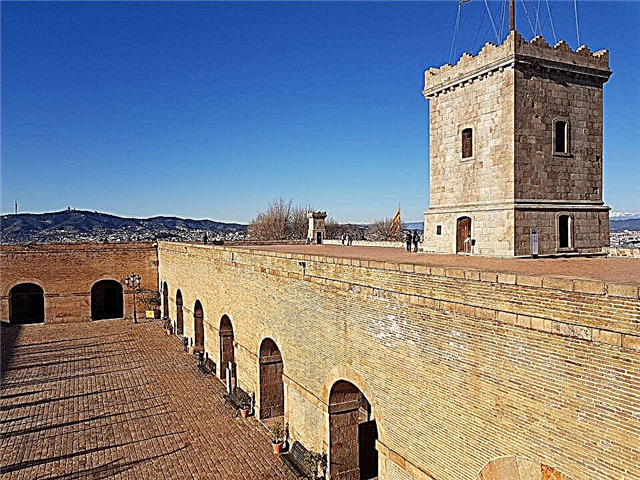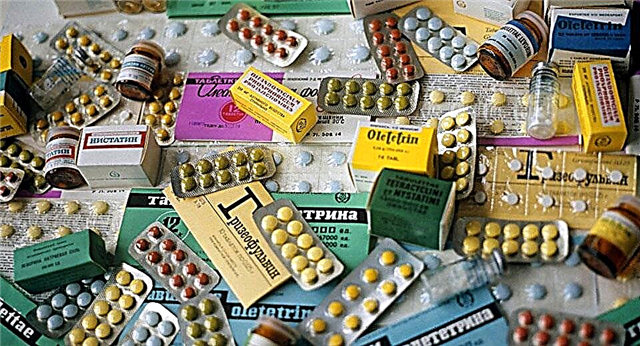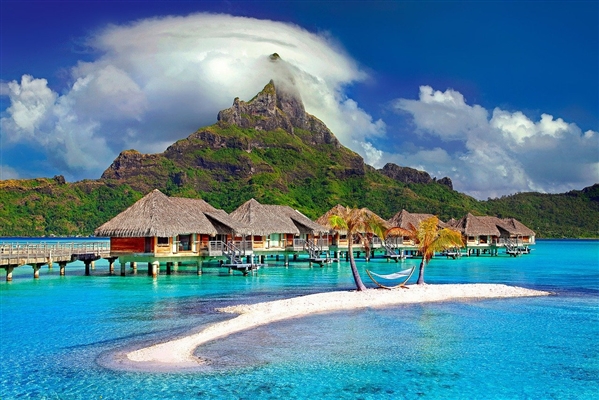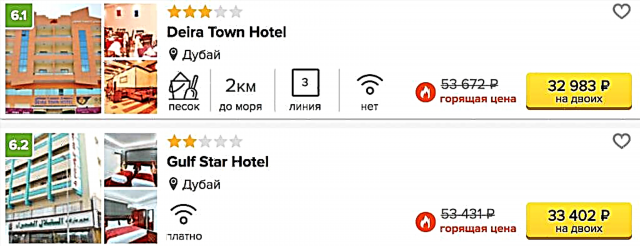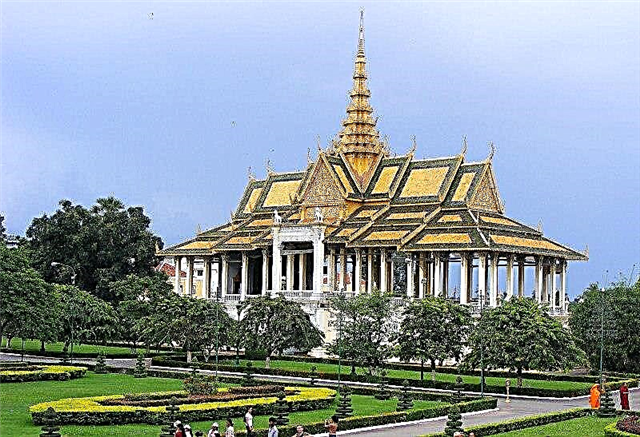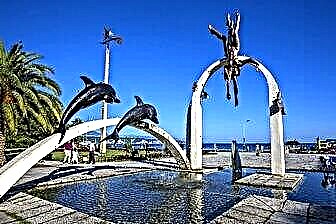The ancient name of Pitsunda is Pitiunt, which means "pine" in Greek. In ancient times, the colony received such a name due to the luxurious coniferous forest that covers the shores of the Black Sea and attracted the attention of conquerors from Hellas. It was here, among the age-old trees, that they decided to found their settlement.
Modern Pitsunda is a small town with a population of several thousand people, located 20 km from the city of Gagra on the cape of the same name. In Soviet times, it was a famous resort, where people from all over the Union tried to get to, today you can still find reflections of its former glory here: tourists still sunbathe on the beach, try Abkhaz cuisine in small cafes and walk along shady alleys among cypresses.

The best hotels and hotels at affordable prices.
from 500 rubles / day
What to see and where to go in Pitsunda?
The most interesting and beautiful places for walking. Photos and a short description.
Central beach of Pitsunda
The central beach of the resort is the most comfortable and largest in the city. This place is famous for its clean water, as it is located in the Pitsunda Bay and is reliably protected from the winds. The coastline is covered with small pebbles, the entrance to the sea is rather gentle, which makes it convenient for children. The beach has all the usual amenities, water equipment rental and some entertainment. There are cafes of local cuisine and souvenir stalls along the waterfront.

Sculpture "Divers"
The composition is installed at the entrance to the Central Beach. It consists of several arched structures symbolizing the waves of the sea, figures of a man and a woman plunging into the depths of water, and two dolphins. The sculptural group was sculpted by the Georgian master I.A.Ochiauri, it was installed in 1969. For a long time, the city administration postponed the opening of the monument, because, according to local authorities, Soviet people should not swim naked in the sea.

Sculpture "Medea"
The statue of the Colchian princess Medea stands on the very shore of the sea. She is depicted in anger, ready to kill her own children out of hatred for their father Jason. The five-meter monument is made of bronze. The author was the sculptor M.I.Berdzeneshvili. The powerful figure evokes a contradictory impression - from afar it seems to be a pile of stones, and from close up it is a woman with disproportionately large limbs.

"Great Pitiunt"
Historical and architectural complex, on the territory of which there are ruins and structures of different eras: foundations of houses of an ancient colony, a fortress wall of the 10th century, ruins of an early medieval basilica, an ancient dolmen. The main object is considered to be the temple of the Apostle Andrew the First-Called, built over 1000 years ago. Also within the complex is the Museum of the History of Pitsunda.

Patriarchal Cathedral
A unique temple of the X century, the real pride of Abkhazia and one of its spiritual centers. The structure has survived to this day in the form in which it was even during the heyday of the Abkhazian kingdom. Inside there are tombs intended for Andrew the First-Called and Simon the Canaanite (companions of Jesus). This fact is evidenced by the paintings on the walls.

House-Museum of Khetsuriani
Georgy Khetsuriani is a craftsman and collector who has devoted his entire life to studying the history of his country and collecting ethnographic and archaeological exhibits. A private museum named after him is located in the village of Lizawa near Pitsunda. The exposition consists of products by Abkhaz craftsmen, household items, stuffed animals, models of old houses, photographs and documents.

Pitsundo-Mussera reserve
The natural territory is located in the coastal zone on the Pitsunda Peninsula, and also captures the slopes of the Musser Upland. The flora of the reserve is rich and varied, a considerable part of it is represented by relict endemics: Colchis boxwood, Pitsunda pine, Iberian oak, strawberry tree, royal fern and other species grow here. The reserve is a natural heritage of the country.

Relic pine grove
The grove, consisting of relict Pitsunda pine, stretches for several kilometers along the sea. The town itself is surrounded by it from all sides. On the Black Sea coast, a similar forest has survived only here and near Gelendzhik. The grove is a remnant of a prehistoric forest that covered the entire territory of Abkhazia even before the appearance of human traces here. It is thanks to this natural attraction that Pitsunda became famous throughout the Union.

Pitsunda lighthouse
The lighthouse was built at the end of the 19th century. It is located on the edge of Cape Pitsunda, surrounded by multi-storey sanatorium buildings built during the Soviet era. It worked until the end of the 1960s, after which it was abolished. The height of the structure is 36 meters. Currently, the lighthouse is in disrepair - the structure is rusted and is only supported by metal supports.

Lake Inkit
A small lake with an area of 0.4 km² and a maximum depth of just over 3 meters, located at Cape Pitsunda. Due to the fact that the level of the reservoir is artificially lowered, salt water gradually penetrates into it. Inkit belongs to the relict lakes - it was formed several thousand years ago. One of the legends says that in the distant 4th century the ships of Alexander the Great were stationed here.


